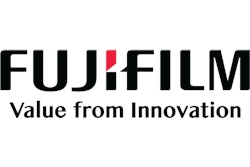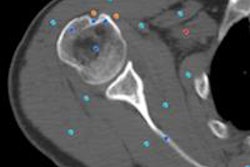
In a deal announced on May 13, Fujifilm Medical Systems USA made a move to increase its presence in the rapidly growing market for vendor-neutral archive (VNA) software and services by acquiring VNA developer TeraMedica.
Fuji announced that it had completed the acquisition, with TeraMedica now operating as Fujifilm TeraMedica. The purchase is the culmination of a partnership in VNA technology that began in 2013, when the firms signed a deal in which TeraMedica agreed to provide its VNA technology to Fuji.
Since then, Fuji has seen interest in VNA technology grow for a variety of reasons, according to Jim Morgan, vice president of medical informatics at Fuji. Healthcare networks see VNAs as a means to a single point of access for all of their healthcare data, in a way that's independent of whatever vendor they might be using for specialty-level applications, such as PACS.
"Customers are looking at replacing legacy systems and migrating to VNA, and the goal is to replace the legacy PACS," Morgan said. "The larger the health system, the more likely they will be interested."
The deal represents a validation of TeraMedica's business model, which seemed like a radical idea when the firm was launched in 2001. At the time, PACS vendors had a hammerlock on medical imaging data, and the idea of an imaging facility moving its archive to third party was rarely considered.
Since then, the PACS-centric model of data management is increasingly being viewed as a legacy architecture, and more PACS vendors are trying to position themselves as VNA providers -- with varying levels of success. For its part, TeraMedica evolved into the last remaining large, independent player offering VNA services, with an installed base of 300 customers around the world, according to Greg Strowig, chief operating officer of Fujifilm TeraMedica.
With the acquisition a done deal, Fuji believes it will have a leg up on vendors that are trying to latch on to the VNA market's success, thanks to TeraMedica's long pedigree in the market. Fuji will also benefit from TeraMedica's experience in connecting to PACS networks from multiple different vendors.
"This ensures that customers understand that we have a truly vendor-neutral archive; it's not a PACS converted to be a VNA," Morgan said.
Fuji plans to maintain TeraMedica's Milwaukee offices and expand the firm's staff of 40 employees, Morgan said. He believes that Fuji should be able to grow sales of the company's product line due to its larger sales network, as well as its broader product line of imaging informatics solutions, from radiology- and cardiology-based PACS to advanced visualization, and now VNAs.
"There are not many companies in the market that have the full suite of products" that Fuji does now, Morgan said.



















